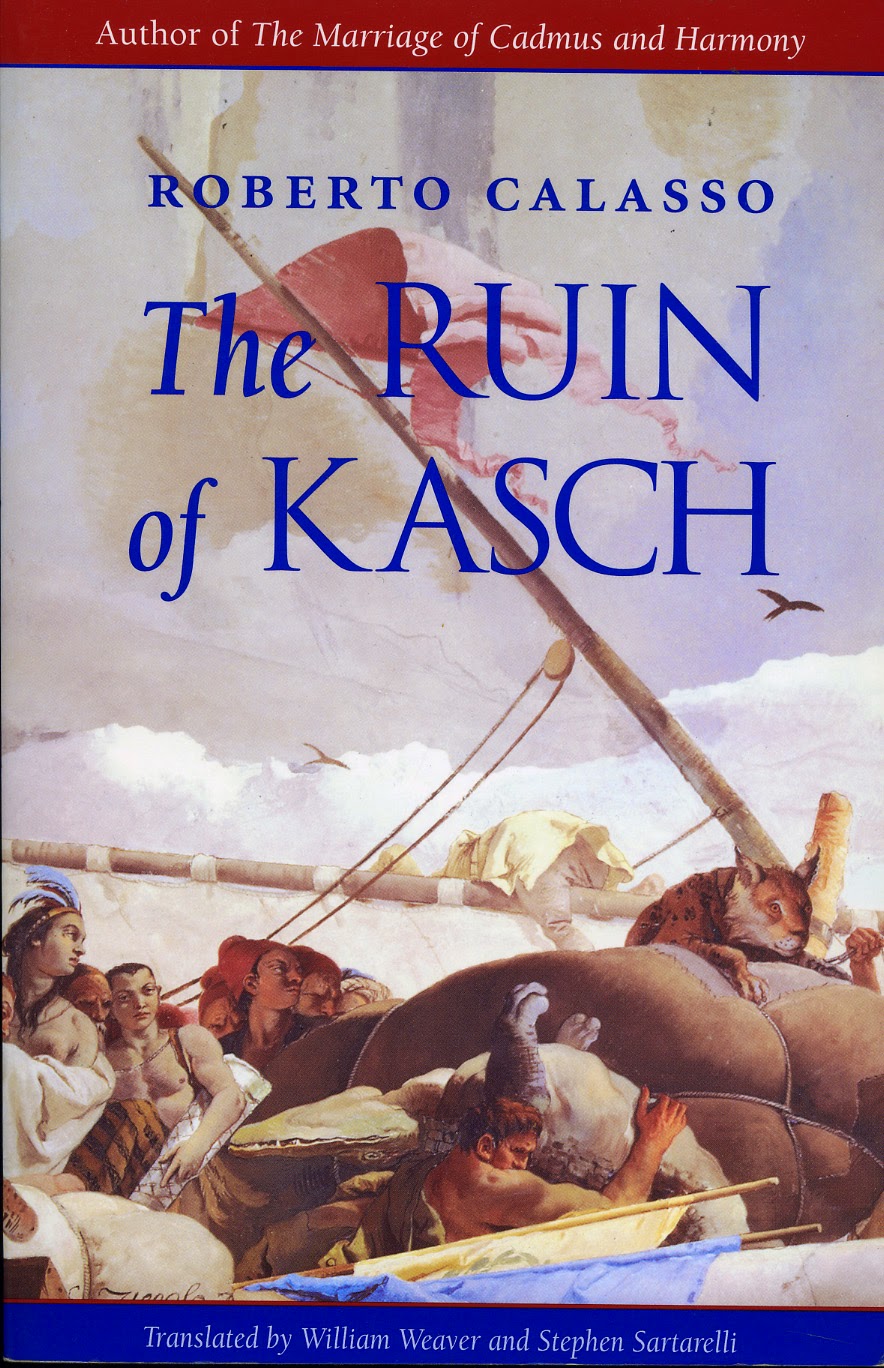Monday, January 5, 2015
Intermittent and improbable
Roberto Calasso published La Rovina di Kasch in Milan in 1983. Ten years later the book was translated into English and published by Harvard University Press as The Ruin of Kasch. As with all Calasso's books, the true subject of this one is the history and meaning of Western culture itself. And (as in all his other books) Calasso feels free to leap across great gaps of space and time in order to make his own unexpected connections.
Translators for The Ruin of Kasch were William Weaver and Stephen Sartarelli. They should have a mention of their own because I want to quote a single perfect paragraph from the middle of the book. A paragraph like this one is persuasive to me mainly because it is beautifully composed. But when we read translations and are impressed with the quality of the prose, we obviously owe as great a debt to the translator as to the author.
"The phenomenon whereby the world's disparate signs are repeated until they condense into so many omens has a precise opposite – namely, the forced repetition of a word, which soon makes it lose all meaning and leaves it at our feet like an opaque shell of sound. In these two experiences we find, in the private and secret space of our mind, the original schism. This was the schism that appeared when the world became too charged with meanings: even as those meanings took on a life of their own, uncontrollable, looming, overwhelming, so that their excessive power finally made them converge toward a single meaning (death), another world was forming, the precinct of culture, where humans imposed their will, used their ability to give names, to establish meanings through the artifice of convention. If we fear repetition in the signs that come to us from the world, it is because in that repetition we discover that the world's powers are always there, dozing perhaps, and surely somewhat removed, but still present and ready to swallow us as if we were a word in their language. If we feel strangely uneasy when we note that a word, automatically repeated, seems to lose all connection with its meaning, it is because at that very moment we sense the weakness, the precarious nature of the act on which all culture is based. To think is to set out hesitantly toward the site of that twofold uneasiness, in an effort to escape simultaneously from nature and from culture. This is why thought is an intermittent and improbable activity."
The Italian press below came out in 2010 when Roberto Calasso's most recent book, Ardore, was published in his own country. Ardor, the English translation, was released in the U.S. a few months ago.
Labels:
books,
dust jackets,
Italy,
newspapers,
reading,
tradition,
translation,
writers

